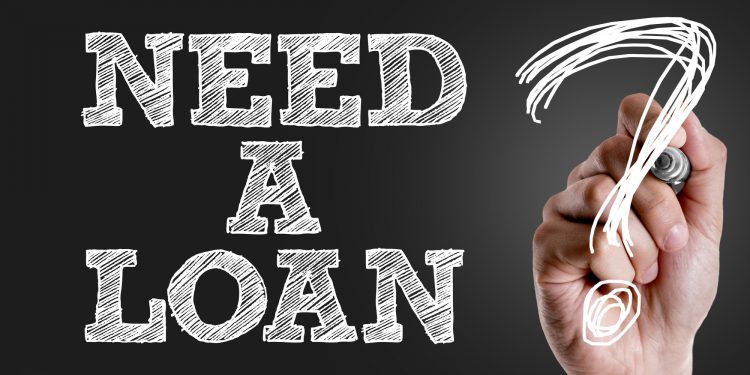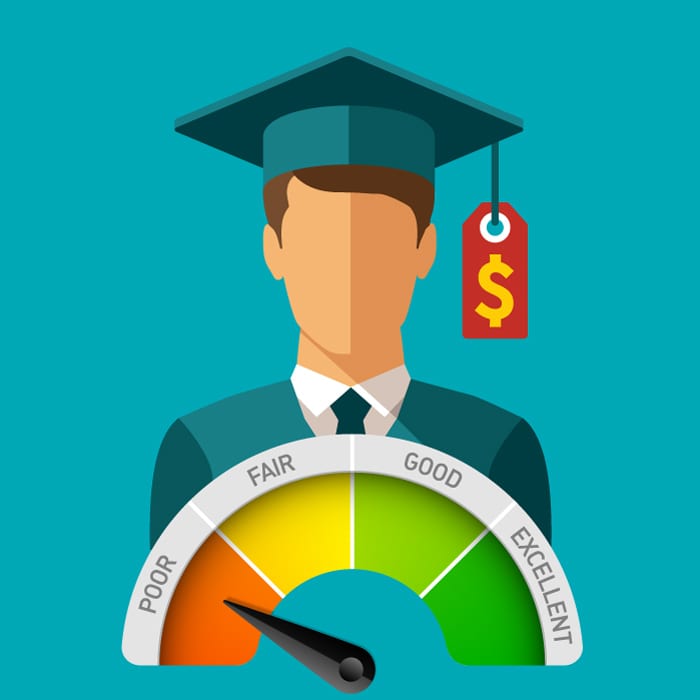Understanding why Installment Loans are common among modern borrowers
A Comprehensive Overview to Home Loans: Services and Options Explained
Charting the globe of home mortgage can be complex. Various alternatives exist, each with distinct attributes and ramifications for possible homeowners. Understanding the distinctions between government-backed and standard car loans is vital. Furthermore, the application process entails precise documentation and pre-approval actions that many neglect. As borrowers start on their home-buying trip, knowing exactly how to handle these obligations effectively can suggest the distinction between financial security and hardship. What techniques can encourage them on this course?
Recognizing Home Loans: Types and Terminology
Recognizing the numerous sorts of home mortgage and their associated terms is essential for possible property owners, as it equips them with the knowledge required to make educated economic decisions. Home mortgage can be extensively categorized into fixed-rate and adjustable-rate mortgages. Fixed-rate mortgages preserve a regular rate of interest rate over the life of the financing, offering security in month-to-month repayments. Payday Loans. Conversely, variable-rate mortgages include rate of interest that might vary after a preliminary fixed period, potentially bring about lower preliminary payments but enhanced future prices
Extra terminology is essential for clarity. Principal describes the loan quantity obtained, while passion is the cost of borrowing that quantity. The regard to the car loan suggests its period, usually varying from 15 to thirty years. Understanding these essential concepts allows possible purchasers to browse the complex landscape of home financing, ensuring they choose the appropriate loan alternative that lines up with their monetary scenario and lasting objectives.
Standard Loans vs. Government-Backed Loans
A significant distinction in home funding exists between standard lendings and government-backed car loans, each accommodating various customer demands and conditions. Standard fundings are not insured or guaranteed by the government and usually call for higher credit score scores and deposits. They are frequently interesting consumers with secure financial histories, as they might use affordable interest rates and terms.
On the other hand, government-backed financings, such as FHA, VA, and USDA car loans, are made to aid details teams of customers, including novice homebuyers and experts. Cash Advance. These fundings generally include reduced down repayment demands and more adaptable credit report standards, making them available to a broader array of people
Eventually, the option between traditional and government-backed fundings pivots on the debtor's monetary scenario, long-lasting objectives, and eligibility, making it vital to thoroughly evaluate both alternatives prior to choosing.

The Role of Rate Of Interest in Home Financing
Rate of interest prices play a crucial duty in home funding, affecting borrowers' decisions between variable and fixed price finances. The selection in between these options can greatly influence monthly settlements, impacting general affordability. Recognizing how interest rates operate is vital for anyone maneuvering through the home car loan process.
Dealt With vs. Variable Prices
Property buyers face an important choice when choosing between repaired and variable prices, as this choice greatly affects the cost of funding gradually. Fixed-rate home loans offer stability, securing a rate of interest for the life of the lending, which can be beneficial in a climbing rate of interest environment. This predictability enables home owners to budget plan a lot more successfully. On the other hand, variable-rate home loans, or variable-rate mortgages (ARMs), normally begin with reduced preliminary prices that can fluctuate based upon market conditions. While this might lead to lower first payments, debtors face the risk of raised prices in the future. Eventually, the choice in between set and variable rates relies on specific financial circumstances, threat tolerance, and assumptions pertaining to future rates of interest fads.
Impact on Regular Monthly Settlements
When evaluating home financing alternatives, the influence of interest rates on monthly repayments is a vital factor to contemplate. Rate of interest directly influence the overall cost of borrowing, impacting how much a borrower will certainly pay every month. A reduced rate of interest results in smaller sized month-to-month payments, making homeownership extra budget friendly. Conversely, higher prices can substantially increase monthly obligations, possibly stressing a homeowner's budget. Additionally, the car loan term plays a crucial function; longer terms might spread out payments out however can cause paying more passion over time. Recognizing just how rate of interest communicate with funding amounts and terms is vital for customers to make enlightened economic decisions and choose a home mortgage that lines up with their long-lasting financial objectives.
Home Loan Brokers vs. Straight Lenders: Which Is Right for You?
When taking into consideration a home loan, potential consumers need to comprehend the unique duties and responsibilities of home mortgage brokers and direct loan providers. Each option provides its very own advantages and negative aspects, which can substantially influence the overall price of financing. An enlightened option needs cautious evaluation of these elements to determine the most effective suitable for private demands.
Roles and Duties Specified
Maneuvering the intricacies of home financing requires a clear understanding of the duties and responsibilities of mortgage brokers and straight lenders. Home mortgage brokers serve as intermediaries, linking borrowers with loan providers. They analyze a debtor's financial circumstance, curate funding alternatives, and overview clients via the application procedure, often leveraging several loan provider relationships to secure beneficial terms. On the other hand, direct lenders, such as banks and cooperative credit union, give car loans directly to debtors. They take care of the whole loan procedure, from application to funding, with a focus on their own products. Each option provides unique methods for getting funding, making it important for customers to examine their needs and preferences when making a decision in between engaging a home loan broker or dealing with a direct lender.
Cons and pros Contrast
Selecting in between a mortgage broker and a straight loan provider can considerably affect the home financing experience, as each option offers distinct advantages and drawbacks. Mortgage brokers work as middlemans, providing accessibility to several loan providers and potentially far better prices, while simplifying the finance process. They may bill costs and rely on payment structures that can influence their suggestions. On the other hand, direct lending institutions enhance the process by supplying internal loans, which can bring about quicker approvals and less difficulties. On the other hand, they may have a restricted choice of products and less versatility pertaining to prices. Ultimately, the choice depends upon specific preferences, economic circumstances, and the preferred degree of support throughout the home loan journey.
Expense Effects Analyzed
While reviewing the cost implications of home mortgage brokers versus straight lenders, potential home owners have to consider different variables that can considerably affect their total expenses. Home loan brokers commonly bill costs for their solutions, which can vary significantly, affecting the general finance cost. They often have accessibility to a broader variety of financing products and competitive rates, potentially saving debtors cash in the long run. Conversely, straight loan providers may use a more straightforward process with possibly reduced upfront expenses, yet their lending choices may be restricted. It is important for home owners to compare rate of interest, charges, and terms from both brokers and lenders, guaranteeing they make an informed decision visit this site right here that aligns with their monetary goals and demands.
The Mortgage Application Refine: What to Expect

The home funding application process can frequently feel daunting for several applicants. It normally starts with collecting needed documentation, including evidence of earnings, credit report, and personal recognition. Lenders utilize this details to analyze the candidate's monetary stability and identify loan qualification.
Next off, candidates send an official application, which may involve filling in on-line forms or supplying details personally. During this stage, lending institutions evaluate different elements, such as debt-to-income ratio and credit rating, to choose lending terms.
Once pre-approved, the lending institution will certainly carry out an extensive evaluation of the residential property to establish its value straightens with the lending quantity. This stage may likewise consist of extra history checks.

After last authorizations and conditions are met, the car loan is processed, bring about the closing phase. Recognizing each action equips applicants, making the journey smoother and more workable as they relocate toward homeownership.
Tips for Managing Your Mortgage Sensibly
Successfully maneuvering the home funding application procedure is just the start of an accountable economic journey. Managing a home mortgage needs attention to a number of vital practices. First, customers ought to establish a clear spending plan that fits monthly home mortgage repayments, property tax obligations, and insurance policy. Frequently reviewing this spending plan aids stop overspending and guarantees timely repayments.
In addition, making added payments when possible can significantly reduce the financing principal and overall passion paid over time. Debtors should additionally maintain open lines of communication with their loan provider, specifically in times of financial trouble. This can cause potential services such as lending adjustments or re-financing options.
It is a good idea to monitor credit rating scores frequently. An excellent credit report can provide chances for far better car loan terms in the future. Fast Cash. By following these suggestions, homeowners can navigate their funding duties efficiently, ensuring long-lasting financial health and stability
Often Asked Inquiries
What Are Closing Costs and Just How Are They Determined?
Closing expenses incorporate fees connected with settling a home loan, including assessment, title insurance policy, and lending origination costs. These expenses usually vary from 2% to 5% of the funding quantity, varying based on location and lender.
Can I Get a Mortgage With Bad Debt?
Yes, people with negative debt can qualify for a mortgage, though options might be limited. Lenders usually call for greater down payments or passion rates, and discovering government-backed finances might improve chances of approval.
What Is Home loan Insurance and When Is It Needed?
When a borrower top article makes a down repayment of much less than 20%, home loan insurance policy shields loan providers against default and is usually called for. It ensures that loan providers recover losses if the borrower stops working to pay off the funding.
Just How Does Refinancing Work and When Should I Consider It?
Refinancing includes changing an existing home loan with a brand-new one, commonly to protect a reduced interest price or modification finance terms. Homeowners ought to think about re-financing when rates of interest go down significantly or their monetary scenario enhances.
What Happens if I Miss a Home Mortgage Repayment?
If a home mortgage payment is missed, the loan provider usually analyzes late costs, reports the misbehavior to debt bureaus, and may start foreclosure procedures if payments continue to be overlooked, eventually jeopardizing the house owner's residential property.
Fixed-rate home loans preserve a regular passion price over the life of the financing, providing stability in monthly payments. A significant difference in home funding exists between government-backed lendings and conventional lendings, each catering to various customer demands and scenarios. In comparison, government-backed car loans, such as FHA, VA, and USDA finances, are made to help specific groups of consumers, consisting of newbie property buyers and professionals. Interest prices play an essential duty in home funding, affecting consumers' decisions in between fixed read here and variable price loans. Fixed-rate home mortgages provide security, locking in an interest price for the life of the car loan, which can be useful in a climbing passion rate setting.